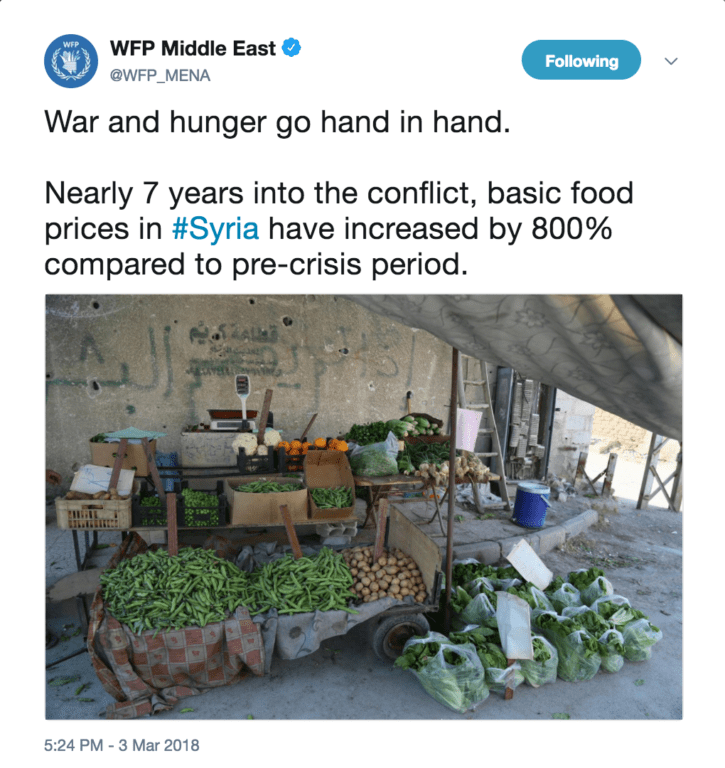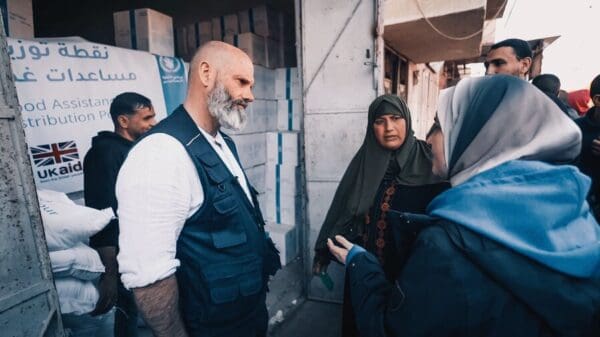2 years. 100,000 people. 309 airdrops.

You think: ‘Where are the children, and how will they eat today?’ And then it’s, ‘What about tomorrow? Will there be one?’
Four months.
That’s how long the people in Douma, in Eastern Ghouta, Syria, went without a single delivery of food. Mothers unable to nurse their children. Families eating from trash bins. And we don’t know when the next stop in fighting will allow the World Food Programme (WFP) to deliver food to these starving people again. It could be two weeks. Four months. A year.
Every day that passes the situation grows more dire. In Eastern Ghouta and elsewhere in Syria people can’t afford basic food:
Fighting has forced them to depend on deliveries from WFP to eat. To survive.
The conflict is raging and ceasefires are far too infrequent. This is the view a WFP staff member has from his window in Syria:
This violence makes it nearly impossible to reach the people who need help, but WFP refuses to abandon them.
During the two years the city of Deir Ezzor, Syria was under siege, fighting blocked the roads and waterways preventing traditional convoys from entering the city. But people were starving, so WFP tried another route: through the skies.
Over the course of two years, WFP completed a total of 309 airdrops — often the only source of food for the helpless civilians inside the city:
Once the siege was lifted on Deir Ezzor, WFP staff were able to safely enter the city, where they met Abu Sufian. Like many others in Syria, Abu lost so much during all the fighting — but without airdrops from WFP, he may have also lost his life:
Without donors like you, there is no WFP. You are the difference.




